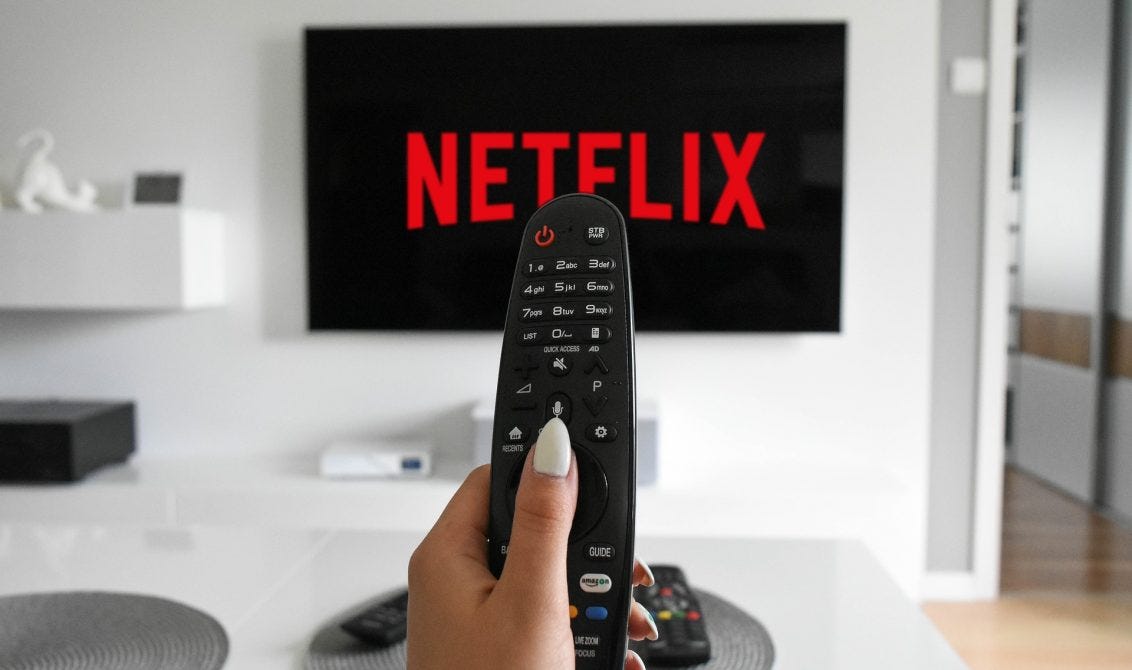30% Local Content Quota Draft is Beyond Daft
The SABC has proposed to use a 30% local content quota for foreign streaming sites to grow SA entertainment. But will this really work?
Written by: Nicholas Woode-Smith
It should come as no surprise that policy makers have proposed to require foreign streaming companies, notably Netflix, to maintain a minimum of 30% local content on their virtual catalogues. Alongside this, SABC wishes to introduce TV licenses for non-TV devices. Despite having nothing to do with our phones, laptops, tablets and smart calculators, the SABC wishes to add an additional tax (on top of the VAT we already pay) so to keep itself alive.
Both these policies are, simply, completely and utterly devoid of reason. And that’s why I’m not surprised. It’s become completely clear that our government’s policy makers do not understand how the real-world works. They care only about lining their own pockets, putting their friends and relatives in positions of power, and continuing to implement a bloodthirsty and unrealistic ideology when they can.
The authors of the “Draft The White Paper On Audio And Audiovisual Content Services Policy Framework” do not understand the first thing about streaming, the digital age or entertainment. Their proposal to force a foreign entertainment company to maintain 30% of their catalogue as local content is beyond ludicrous and belies a complete ignorance of how the system works and the possible ramifications.
But why do they want this to happen?
They claim it’s to spur on local production of entertainment. That if Netflix is forced to air SA media, then locals will suddenly decide to produce shows. This completely ignores a far bigger reason why the SA entertainment industry is stunted. Lack of capital, lack of skills, crime, and an unfriendly environment to business. Forcing Netflix to air 30% local content won’t help this. Only liberalisation of the economy will.
Despite this apparent need to encourage local content, the Department of Communications and Digital Technologies’s Chief Director, Collin Mashile, went on to say that:
“The most popular shows in every country remain the local shows.”
So, if people are already watching local shows, why then do we need to force streaming services to air them? If local shows are what people want, then streaming services will provide them.
On the face of it, this policy is just immoral. No government should be able to dictate the catalogue of any company. Netflix is under no obligation to destroy its own finances paying licensing fees to locals to try fill the quota. To think otherwise is to reject the very notion of a free market. But a free market is exactly what our government doesn’t like.
Not only is this policy ill advised, it’s unworkable. And if they try to implement it and Netflix tries to comply, it will be disastrous.
Simply, mathematics. Netflix’s portfolio of films and series is huge. There simply is not enough local content available to fill 30% of it. As a result, Netflix will have to remove content from its stable rather than acquiring more SA content.
This will be a huge loss for Netflix, as they lose content people actually like, and an even bigger loss for South Africans as they can no longer watch the films and series they want to watch.
The TV License for Non-TVs
TV licenses already are a daft, immoral notion. No one should be forced to pay a license fee to own a product like a TV. Especially when that product has nothing to do with the government. Public broadcasters like the SABC have no reason to exist. But even if they did, they should only charge their viewers, and not force people who don’t even have TV antennae to finance their subpar content. Especially seeing that we have to pay VAT for Netflix and internet already.
TV licenses are, simply, another tax. It doesn’t matter if we use the service or not. That’s not what it’s about. It’s simple looting. And now they want to expand the looting criteria to any device as they realise the peasants have figured out a way to keep more of their hard-earned cash.
If there’s no reason for there to be TV licenses, which there isn’t , then there’s definitely no reason to charge a TV license for non-TV devices. It’s a ludicrous idea that the SABC thinks it has a right to finance itself off people who do not consume any of its terrible content.
If this law passes, then I hope South Africans all refuse to comply.
What should we do?
Despite the terrible form of this proposed legislation, there must be a need for it if it’s being proposed, right?
Well, no. Wrong.
Legislators feel they must legislate to justify their own salaries, and the TV licensing proposal is simple looting. There is no real need for a 30% quota or even for a local entertainment industry.
If the government is needed to help an industry, then that industry doesn’t deserve to succeed. And, frankly, we have way bigger concerns than our infant entertainment industry. Our entire economy is in shambles and we drastically need deregulation and a complete change in regime (or even the state of the country) before we can even think of luxury industries like entertainment.
The government needs to mind its own business. Netflix is a small mercy that some South Africans can enjoy as our country collapses around us. The government should leave us alone and go count their stolen money in silence.
If we’re going fall apart, we might as well have Netflix to distract us, untarnished by a ridiculous, nationalistic entertainment regime.
Nicholas Woode-Smith is the Managing Editor and a Co-Founder of the Rational Standard.





